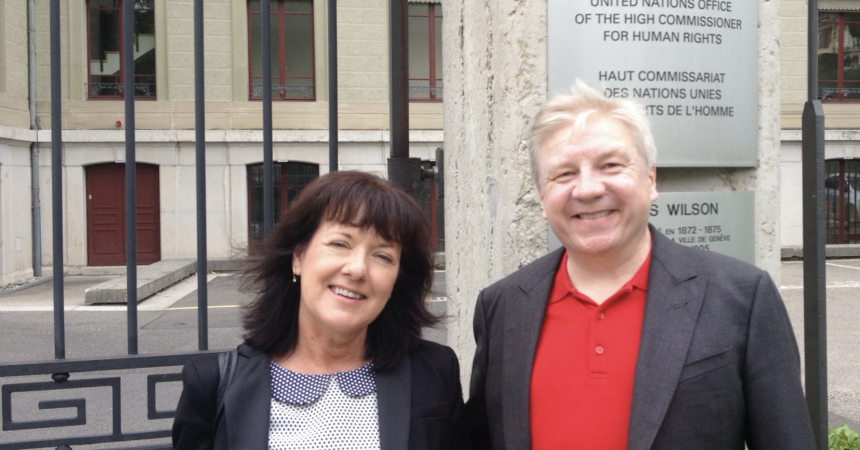
UN again tells Ireland to provide secular schools and remove religious oaths
Atheist Ireland welcomes today’s concluding observations of the UN Human Rights Committee, which again tell Ireland to provide secular education by establishing non-denominational schools, and to further amend the Employment Equality Act to bar all forms of discrimination against teachers and medical workers.
The UN Committee has also told Ireland to remove the religious oaths in the constitution for people who take up senior public office positions, taking into account the right not to be compelled to reveal one’s thoughts or adherence to a religion or belief in public.
Atheist Ireland raised these three issues with the UN Committee, both in our submissions to the recent session and during the session, in which the UN questioned Ireland about its obligations under the International Covenant on Civil and Political Rights.
We have repeatedly raised these issues with the UN, and the Irish state has repeatedly told the UN that it will address them, but the government never carries through on these commitments.
Indeed, Ireland misled the UN Committee this year by saying the government’s objective is to have 400 ‘multi-denominational or non-denominational schools’. But this is not true. The programme for government refers only to ‘multi-denominational’ schools.
What the UN has repeatedly asked for is secular or non-denominational schools, which they explicitly refer to in this week’s concluding observations.
Atheist Ireland continues to promote these three fundamental human rights: the right to secular education through nondenominational schools, the right to teach and work in hospitals without religious discrimination, and the right to be President, a judge, Taoiseach, or Tanaiste, without swearing a religious oath that a conscientious atheist could not take.
Here are the relevant extracts from the UN’s concluding observations:
Freedom of religion
41. The Committee welcomes the adoption of the Education (Admissions to Schools) Act 2018 to prohibit the use of religion as a selection criterion in primary school admissions, and the measures taken towards the establishment of multi-denominational schools. However, recalling its previous concerns, the Committee regrets the lack of information regarding the access to secular education through the establishment of non-denominational schools.
The Committee is concerned the provisions of the Act relating to the prohibition of religions as a selection criteria only applies to primary education and about reports that over half of secondary schools are under religious patronage and operate with a religious ethos.
It is also concerned at the slow progress in amending the provisions of the Constitution that oblige individuals wishing to take up senior public office positions to take religious oaths.
Furthermore, the Committee reiterates its previous concern that under section 37(1) of the Employment Equality Acts, religious-owned institutions, including in the fields of education and health, can discriminate against employees or prospective employees to protect the religious ethos of the institution (arts. 2, 18 and 26).
42. The Committee reiterates its previous recommendations that the State party should:
(a) Consider taking concrete steps to amending articles 12, 31 and 34 of the Constitution that require religious oaths to take up senior public office positions, taking into account the Committee’s general comment No. 22 (1993) on freedom of thought, conscience and religion, concerning the right not to be compelled to reveal one’s thoughts or adherence to a religion or belief in public;
(b) Take the appropriate measures to provide secular education through the establishment of non-denominational schools and ensure the further amendment of section 37 (1) of the Employment Equality Act in a way that bars all forms of discrimination in employment in the fields of education and health.
Follow-up
50. In accordance with rule 75, paragraph 1, of the Committee’s rules of procedure, the State party is requested to provide, by 28 July 2025, information on the implementation of the recommendations made by the Committee in paragraphs 12 (Accountability for past human rights violations), 18 (Non-discrimination, hate speech and hate crime) and 42 (Freedom of religion) above.







0 Comments
No comments!
There are no comments yet, but you can be first to comment this article.